The Board of Moab Minerals is the governing body of the Company. The Board acts in accordance with a statutory framework which principally includes the Corporations Act 2001 (Cth) (the Act), the ASX Listing Rules and the Constitution of the Company (Constitution).
The proceedings and meetings of the Board will be governed by the provisions of the Constitution in so far as they are applicable and not inconsistent with this Charter. The Board and/or each Director may obtain independent professional advice to assist in the proper exercise of its powers and responsibilities as it considers necessary.
TThe Board may decide on the number of Directors but must consist of a minimum of three (3). The Board consist of Non-Executive Directors and requires at least one (1) to be an independent Director. A Director’s independence is determined in accordance with the ASX Corporate Governance Council’s Corporate Governance Principles and Recommendations (3rd Edition). Directors shall have a mix of qualifications, skills and experience which allow them to be effective in their role. Directors are appointed for terms not exceeding three (3) years however are eligible for reappointment. No condition is placed on a Board member’s length of appointment, however independence will be considered within the context of the review. In the temporary absence of the Chair, one of the other Board members will act as Chair. The Company Secretary of the Company shall be the Secretary of the Board.
The Board has not established a separate Audit and Risk Committee or Remuneration Committee. The Board considers this is not necessary, taking into account the size of the Company, the size and structure of the Board and the stage of development of the Company.
The Board shall meet as often as is required to undertake its role effectively and a Director may at any time request the Secretary to convene a Board meeting. Board members are expected to attend each meeting in person or via teleconference.
A quorum will comprise two (2) Directors.
The Board may invite any other members of senior management or other individuals to attend meetings, or provide the necessary information, as it considers appropriate A notice of each meeting confirming the date, time, venue and agenda will be forwarded to each Director in advance of the meeting. The notice will include supporting papers for the agenda items to be discussed.
Minutes of proceedings and resolutions of Board meetings shall be maintained by the Secretary. Minutes will be available for inspection by any Director at all times. Minutes of meetings will be provided to all Directors.
Directors are not entitled to vote or participate in the deliberations on any matter in which there is a conflict of interest and/or is a related party transaction.
The Directors have ultimate responsibility for the overall operations of the Company. The Board’s primary role is to oversee the Company’s business activities and management for the benefit of shareholders. The key responsibilities of each Director and the Board collaterally include:
Leadership
Strategy
Shareholder Liaison
Ensure senior management has established and operates a risk management system which is designed to identify, assess, monitor and manage risk.
Monitor the effectiveness of the Company’s occupational health and safety systems.
The Chairman is considered the “lead” Director and utilises his/her experience, skills and leadership abilities to facilitate the governance processes. The Chairman’s specific responsibilities include:
The Managing Director (MD) is responsible for the attainment of the Company’s goals and vision for the future, in accordance with the strategies, policies, programs and performance requirements approved by the Board. The MD reports directly to the Board. The MD’s primary objective is to ensure the ongoing success of the Company through being responsible for all aspects of the management and development of the Company. Specific responsibilities of the MD include:
The Company Secretary is charged with facilitating the Company’s corporate governance processes and holds primary responsibility for ensuring that the Board processes and procedures are carried out efficiently and effectively.
The Company Secretary is accountable to the Board, through the Chairman, on all governance matters. The Company Secretary is appointed and dismissed by the Board and all Directors have access to the Company Secretary.
The Board shall evaluate its performance annually and take appropriate action to address desired improvements in respect of areas where there is a need to enhance its role, effectiveness, processes or composition within the scope of the charter.
The Board shall review this Charter as required. Approval of the Charter is by way of a resolution of the Board.

Level 1, 2A / 300 Fitzgerald Street
North Perth, WA, 6006
Follow us
Website by Bang Digital